Unraveling the Coconut Oil Debate: Truths & Myths for a Healthy You! Discover 5 vital facts before embracing this trendy oil
Coconut oil, once a staple in most Indian households, has seen its popularity
rise and fall like the monsoon winds. From being hailed as a superfood to being criticised for its high saturated fat content, understanding the truth about coconut oil can be quite confusing.
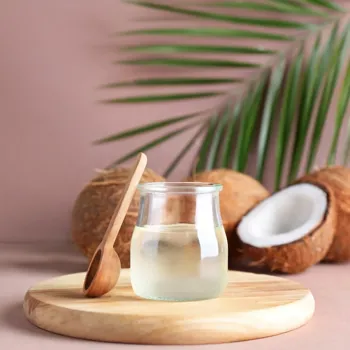
Is it actually good for you, or is it just another passing food trend? Before you generously drizzle it over your 'sabzi' or use it for 'champi', let's consider five important facts to help you make an informed decision for your health.
Remember, moderation and balance are key in any diet, just like adding the right 'tadka' to your Indian dishes! So, let's get cooking and explore the real deal about coconut oil.
Coconut oil's high saturated fat content and impact on heart health
First and foremost, let's address the elephant in the room: saturated fat. Coconut oil is indeed very high in saturated fat, much higher than other commonly used oils like sunflower or olive oil.
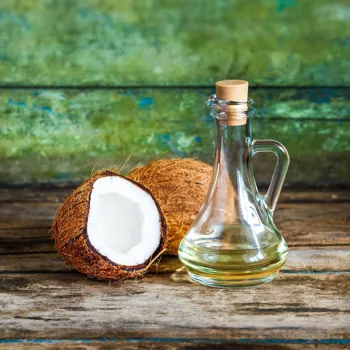
For years, saturated fat was demonized for raising LDL cholesterol (the "bad" cholesterol) and increasing the risk of heart disease. This is where the confusion often begins. The type of saturated fat in coconut oil is mainly medium-chain triglycerides (MCTs).
MCTs are metabolized differently than long-chain triglycerides (LCTs) found in other saturated fats. Some studies suggest that MCTs might be used more quickly by the body for energy, potentially leading to less fat storage.
However, more research is needed to fully understand the long-term effects of MCTs on heart health. It's crucial to consider the overall picture of your diet rather than focusing solely on one ingredient. In India, we enjoy a variety of healthy foods, so ensuring a balanced intake is what matters.
If you have existing heart conditions or high cholesterol, consulting a doctor before adding coconut oil to your diet is always the best course of action. They can provide personalized advice based on your individual health profile and dietary habits.
Choose virgin coconut oil for flavor & nutrients; refined for high-heat cooking
Secondly, consider the different types of coconut oil available in the market. Virgin coconut oil is extracted from fresh coconut meat using methods that preserve its natural flavor and nutrients. It often has a distinct coconut aroma and taste.
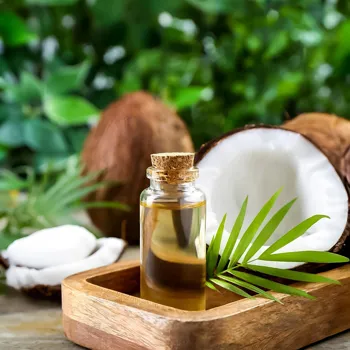
Refined coconut oil, on the other hand, is processed to remove the flavor and scent, making it more suitable for cooking at higher temperatures. The refining process, however, can reduce some of the beneficial compounds found in virgin coconut oil.
When choosing coconut oil, opt for virgin coconut oil whenever possible, especially if you intend to use it for purposes beyond high-heat cooking. Think of it like using fresh 'masalas' versus powdered ones – the fresh ones tend to have a richer flavour and more nutritional value.
Virgin coconut oil is perfect for adding a subtle coconutty flavour to your smoothies or using it as a moisturizer. However, for deep-frying your 'pakoras', refined coconut oil might be a better option due to its higher smoke point.
Coconut oil's benefits and caution against exaggerated health claims
Thirdly, let's talk about the potential benefits of coconut oil. Proponents often highlight its potential to boost energy levels. The MCTs in coconut oil are believed to be quickly absorbed and used by the body for energy, providing a quick and sustained energy boost.
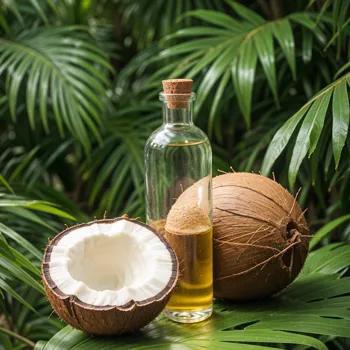
While this might be true for some individuals, it is important to remember that everyone's body reacts differently. Coconut oil is also sometimes praised for its potential antimicrobial properties.
The MCTs, particularly lauric acid, found in coconut oil have shown some antimicrobial activity in laboratory settings. However, it's important to note that these effects have not been consistently demonstrated in human studies.
Claims about coconut oil's ability to cure or prevent diseases should be viewed with skepticism. While there's ongoing research into the potential benefits, it's crucial to rely on evidence-based information and consult with healthcare professionals for accurate guidance.
Remember, no single food is a magic bullet for health, and a balanced diet is paramount.
Incorporate coconut oil in diet moderately for flavor & skincare
Fourth, let's discuss how coconut oil can be incorporated into your diet. Instead of replacing all your cooking oils with coconut oil, consider it as an occasional addition to your meals. Use it to add a touch of flavor to stir-fries, curries, or baked goods. The key is moderation.

A tablespoon or two a day is generally considered a safe amount for most people. You can also use coconut oil topically for skin and hair care. It can be a moisturizing addition to your skincare routine or used as a hair conditioner. Just be mindful of potential allergies or sensitivities.
Like any new food or beauty product, it's best to test it on a small area first to see how your skin reacts. In Indian households, coconut oil has traditionally been used for 'champi' (head massage), which is believed to improve hair health and promote relaxation.
However, remember that individual results may vary.
Coconut oil not a weight loss miracle, moderation is key
Fifth, let’s clarify some misconceptions regarding weight management using coconut oil. Coconut oil is popularly assumed to be a weight loss miracle. Some studies propose MCTs can assist, the evidence doesn’t support this on a larger impact.
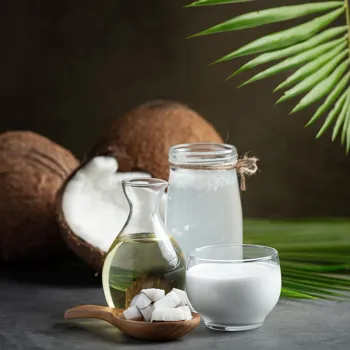
It is vital to note that one shouldn’t depend only on one item for weight loss. Weight management depends on an entire lifestyle, which includes appropriate workouts, healthy diet, and overall well-being. Coconut oil contains enough calories, so eat it in moderation as a part of a balanced diet.
Don’t overdo!
Coconut oil is a healthy choice in moderation
So, is coconut oil a healthy choice? The answer, like most things in nutrition, is not a simple yes or no. It can be a part of a healthy diet when consumed in moderation and as part of a balanced eating plan.
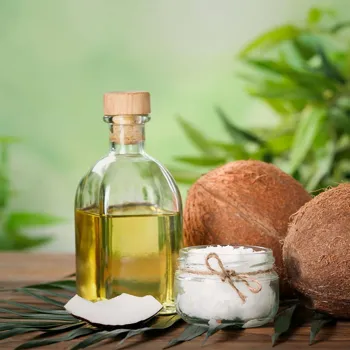
Consider the type of coconut oil you're using, your individual health needs, and how it fits into your overall dietary pattern. Embrace the wisdom of our ancestors by incorporating a variety of healthy oils and foods into our meals.





















